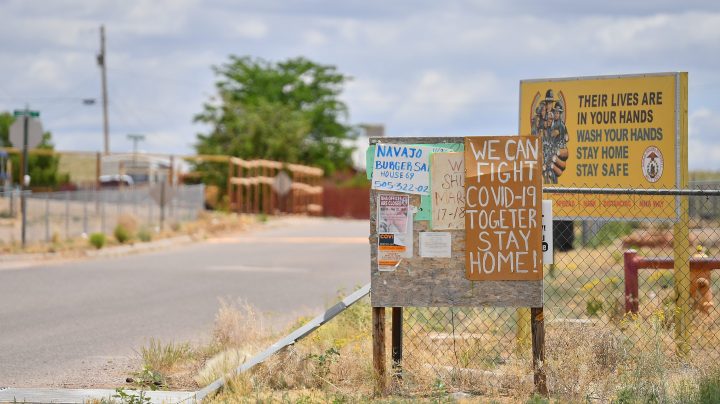
Native American advocates welcome advance funding for Indian Health Service
Native American advocates welcome advance funding for Indian Health Service

In the coming days, President Joe Biden is expected to sign off on $1.7 trillion in government spending.
The omnibus budget bill funds everything from aid to Ukraine to opioid addiction treatment programs as well as a provision that tribal nations have sought for decades: $5 billion in advance appropriations for the federal Indian Health Service.
The IHS provides health care to around 2.5 million American Indians and Alaska Natives. In the past, its annual budget required approval every year, leaving the agency in dire straits during federal budget impasses and government shutdowns. But this shift to advance funding will provide a financial bridge between budgets.
There’s a dark joke in Indian Country that if you’re gonna get sick, you better do it before summer. That’s about when IHS-funded clinics and hospitals start running low on cash, said Chief Kirk Francis of the Penobscot Indian Nation in Maine.
“You might get to June or July and realize that you don’t have the resources,” he said, to order expensive imaging tests or refer patients to specialists.
But it’s during government shutdowns that care centers really start rationing.
During the 34-day impasse in 2019, “we had a person that was complaining of symptoms and was unable to get into the appropriate care,” Francis said.
That is, until it became an emergency, “and then they found out that it was a cardiac problem.”
The lack of advance funding has also got in the way of basic planning at IHS-funded facilities, per Jessica Farb, who looked into it for the Government Accountability Office.
“They don’t know what investments they can make, when they can make those investments, how much money they can set aside,” she said.
That includes investments in things like staffing and infrastructure improvements. And it means the IHS is reacting to emergencies rather than preparing for them, according to Glenn Wilson, chief operating officer of American Indian Health & Family Services in Detroit.
“And a great example of that would be the COVID pandemic,” he said. COVID-19 has killed Indigenous Americans at a higher rate than any other group.
“If advance appropriations would have been in place, we would have had a lot more money to initially attend to some things,” Wilson said.
Properly funded IHS isn’t a favor to tribal nations, said Chief Francis — it’s owed to them based on the federal government’s trust and treaty obligations.
“Advance appropriations is the first step in really starting to change the conversation from a discretionary conversation to a mandatory one,” he said.
Only the first step, because even with advance appropriations, Francis said, the IHS is massively underfunded — to the tune of over $45 billion, by tribal leaders’ latest estimates.
There’s a lot happening in the world. Through it all, Marketplace is here for you.
You rely on Marketplace to break down the world’s events and tell you how it affects you in a fact-based, approachable way. We rely on your financial support to keep making that possible.
Your donation today powers the independent journalism that you rely on. For just $5/month, you can help sustain Marketplace so we can keep reporting on the things that matter to you.


















